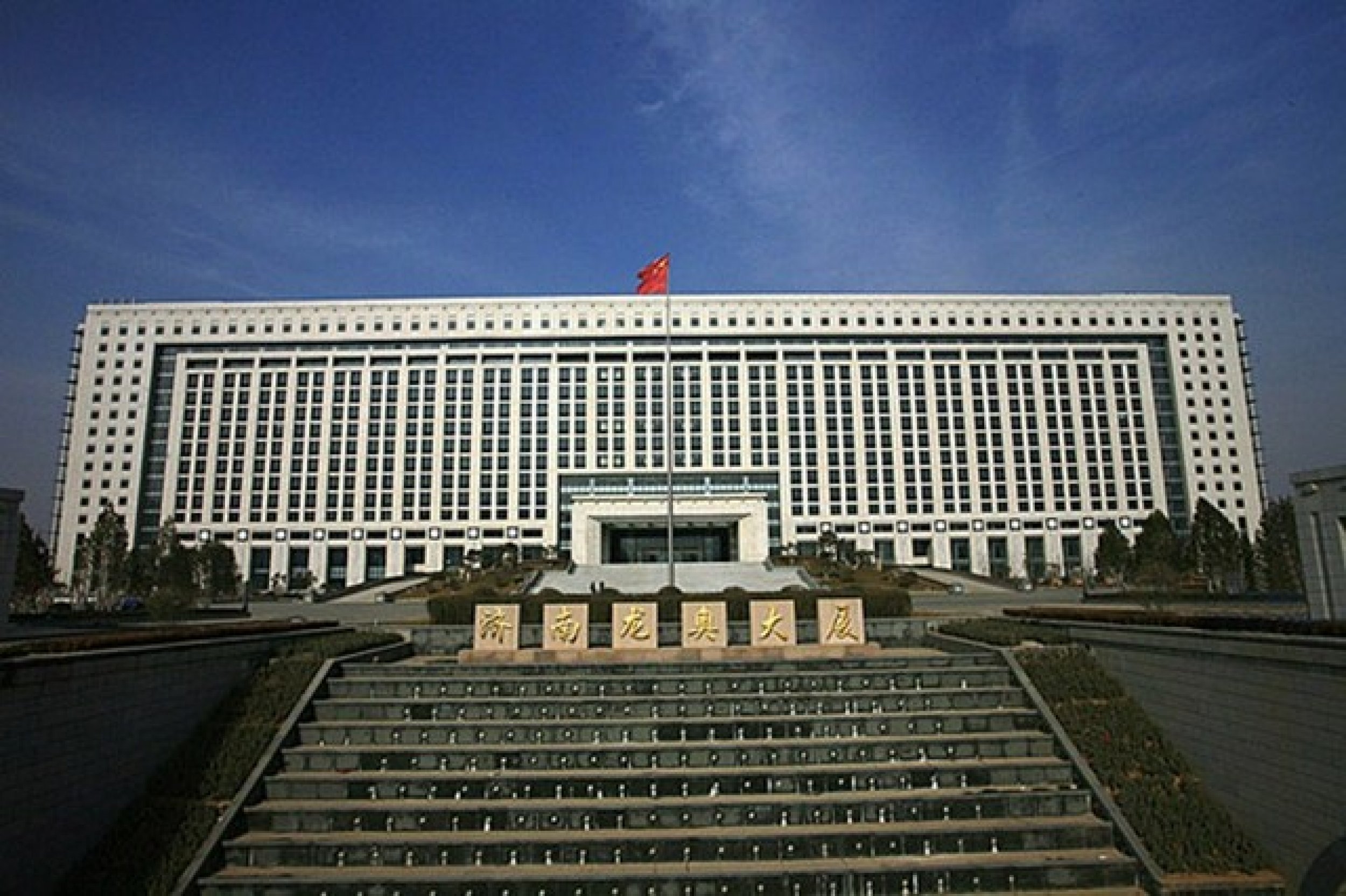China's 4 Billion Yuan Office Building Stirs Up Criticism
Reports that China's largest office building, in the capital of eastern Shandong province, cost the government an estimated 4 billion yuan ($641 million) has enraged many in the Chinese public.
According to China's Global Times, the sprawling structure, covering 370,000 square meters, housing the provincial government, is Asia's largest single building, and is one of the biggest offices in the world, second only to the Pentagon in size.
The building is equipped with 40 elevators, 45,000 telephones and long hallways that will have employees walking a kilometer (more than half a mile).
But the recently released details of the grandiose building is not impressing everyone. Criticism on China's online social network Weibo is highlighting the growing divide between China's rich and poor, seeing this building as a symbol of excessive, unnecessary spending.
One account posted a picture of the building, juxtaposed with a photo of children at a rundown school and suggested that the money would be better spent investing in infrastructure that needs improvement, or even to the nation's poor.
Responses to the picture came pouring in, some referring to the building as a "palace worthy of officials" while others claimed the structure was a tangible evidence of the nation's corruption, demanding an investigation. Netizens also brought up reports that the city of Jinan, where the building is located, spent 180 million yuan on improving the livelihoods of the province's poorer counties and villages since 2003, a meager budget compared to 4 billion.
"How many homeless people could have been fed with that money?" one person commented.
"With that much money, it should go to charity, there are many hungry people!" another user agreed.
Zhu Lijia, a public management professor at the Chinese Academy of Governance, is one of many critics of extravagant government spending.
"This indicates that government officials have excessive power in their hands but lack supervision and constraints. With such extravagance, the public will become disappointed and lose their trust for the government," Zhu told the Global Times.
Jinan officials responded in a report shown on Guangdong TV, claiming the 4 billion yuan figure includes the demolition of the old site and other necessary bureaucratic processes. The official also said the money for the project came from reallocating funds from old government properties, and no additional government money was used.
Some netizens are not buying into the rage against government spending, claiming that only 1.3 billion yuan was put into the structure, as opposed to 4 billion. Additionally, some of these people don't believe the building was built with the intention of housing government officials. The building was initially used for China's 2009 National Sports meeting, which was held in Jinan, and the government agencies did not move into the building until the following year.
Though the facts behind the funding of the massive structure are still debatable, the continued dedication of China's Weibo users to serve as the nation's watchdog should have the government thinking more carefully before spending taxpayer money.

© Copyright IBTimes 2025. All rights reserved.






















